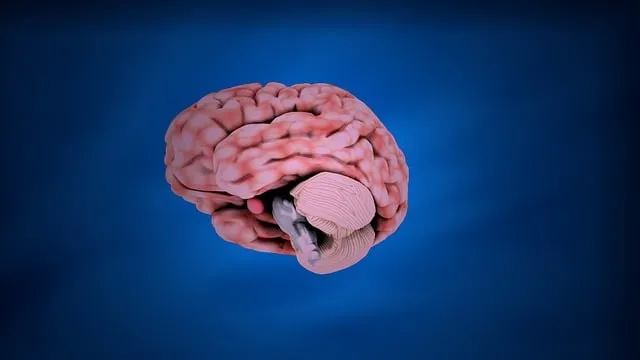Kaiser Denver tackles the challenge of accurate mental illness diagnosis within its diverse patient population by enhancing provider training, adopting evidence-based tools, and promoting a holistic approach. The Mental Wellness Podcast Series provides access to cutting-edge research and practical strategies, improving therapist effectiveness. Kaiser's ongoing training programs cover recent research, diagnostic criteria, and treatment modalities through interactive workshops and case studies. Digital platforms offer journaling exercises and mindfulness practices to aid precise diagnoses and effective treatment plans. Patient-centric approaches prioritize individual needs, leading to enhanced engagement and improved therapy outcomes. These efforts make Kaiser Denver a top choice for those seeking competent therapists in the area.
Mental illness diagnosis accuracy is a critical aspect of patient care. This article explores efforts to improve diagnostic precision at Kaiser Denver, focusing on three key areas. First, we delve into the challenges and consequences of inaccurate diagnoses. Next, we present strategies enhancing accuracy through training and advanced tools. Finally, we discuss patient-centric approaches that improve therapy outcomes and foster trust among Kaiser Denver therapists, ensuring better mental health care for all. Does Kaiser have good therapists in Denver? The answer lies within these innovative initiatives.
- Understanding Diagnostic Challenges and the Impact on Patient Care in Kaiser Denver
- Strategies for Enhancing Diagnosis Accuracy: A Focus on Training and Tools
- Patient-Centric Approaches: Improving Therapy Outcomes and Building Trust with Kaiser Denver Therapists
Understanding Diagnostic Challenges and the Impact on Patient Care in Kaiser Denver

Diagnosing mental illness accurately is a complex task, especially in a large healthcare system like Kaiser Denver. The complexity arises from several factors: diverse patient populations, co-occurring conditions, and the subjective nature of symptoms. These challenges can significantly impact patient care, leading to misdiagnoses or delayed treatment. At Kaiser Denver, efforts are underway to improve diagnostic accuracy by enhancing training for healthcare providers, implementing evidence-based assessment tools, and promoting a holistic approach to mental wellness.
The importance of accurate diagnosis cannot be overstated, especially when considering the profound effect it has on patient outcomes. Does Kaiser have good therapists in Denver? Indeed, the answer lies in these improvement efforts aimed at enhancing emotional regulation and overall mental wellness. By leveraging resources from the Mental Wellness Podcast Series Production, for instance, healthcare professionals gain access to cutting-edge research and practical strategies, further enriching their ability to diagnose and treat patients effectively.
Strategies for Enhancing Diagnosis Accuracy: A Focus on Training and Tools

Diagnosis accuracy in mental health is a critical aspect of patient care, and healthcare institutions like Kaiser are at the forefront of implementing strategies to enhance this process. One key area of focus is training. Mental health professionals in Denver, who often grapple with complex cases, benefit from ongoing educational programs that cover the latest research, diagnostic criteria, and treatment modalities. These training sessions can include interactive workshops, case studies, and peer discussions to foster a deep understanding of various mental illnesses.
Additionally, tools play a significant role in improving diagnosis accuracy. Digital platforms offering Mental Wellness Journaling Exercise Guidance have gained traction, allowing patients to track their symptoms and thoughts over time. This self-reporting method complements professional assessments and provides valuable insights. Stress management techniques, such as mindfulness practices, are also integrated into therapy sessions, aiding in anxiety relief and better overall mental wellness. These tools not only assist therapists but also empower individuals to actively participate in their mental health journey, ensuring more precise diagnoses and effective treatment plans.
Patient-Centric Approaches: Improving Therapy Outcomes and Building Trust with Kaiser Denver Therapists

Patient-centric approaches are transforming therapy outcomes and fostering trust among Kaiser Denver therapists. By prioritizing individual needs and preferences, mental health professionals can create personalized treatment plans that align with patients’ unique journeys. This shift not only enhances engagement but also improves adherence to recommended therapies. With a focus on open communication, therapists in the Denver area are better equipped to build strong therapeutic alliances, making Kaiser Denver a standout choice for those seeking quality mental wellness care.
In addition to conventional therapy methods, therapists at Kaiser Denver encourage practices like mental wellness journaling exercises and conflict resolution techniques. These complementary strategies empower patients with self-awareness tools and effective communication skills, bolstering their overall mental health. Furthermore, advocates within the organization champion Mental Health Policy Analysis and Advocacy, ensuring that policies support and promote accessible, patient-centric mental health services in the community.
In light of the complex nature of mental illness diagnosis, Kaiser Denver’s efforts to enhance accuracy are commendable. By investing in training, implementing advanced tools, and adopting patient-centric approaches, they strive to ensure that their therapists in Denver provide effective care. These initiatives not only improve therapy outcomes but also foster trust between patients and healthcare providers. With these improvements, Kaiser Denver is taking significant steps towards better supporting individuals seeking mental health services.






